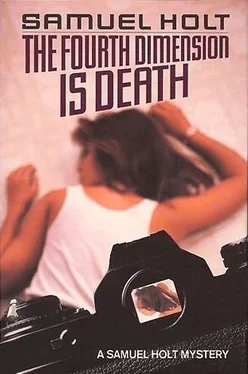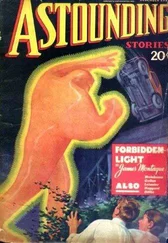“In Florida? Where, at Disney World?”
She laughed, though a little shakily, and said, “No, I’m not going to be Minnie Mouse or anything like that. It’s dinner theater, some kind of musical of Our Town .”
Some kind of musical of Our Town . A chorus singing in its graves. Not all theater is wonderful. I said, “So you’re a singer.”
“No,” she said, with a little ironic smile. “I’m an actress. I’ll be acting a singer.”
“I hope you don’t have to pretend you can carry a tune.”
“No, that I can do.”
Angela brought the appetizers, then, and as she distributed them I said, “How long’s the job?”
“Four weeks. It’s just perfect. By then...” She shrugged, and looked down at her moules mariniere.
“Right,” I said.
We were quiet a while, then, Julie eating her mussels, me ingesting calamari, and Anita picking at a radiccio salad. Being around food so much, Anita has a dismissive attitude toward the stuff, which is why I suppose she’s so thin.
Finishing her mussels, Julie said, “If only it was tomorrow I was leaving.”
“Hey, come on,” Anita said. “The food’s better than that .”
“The food’s great,” Julie told her, with honest enthusiasm. “It’s Dale’s mother I was thinking about.”
“Dale’s mother?”
“She’s coming to town tomorrow. You know, take care of details, then bring Dale back to Iowa.”
Iowa. Another proof of my belief that everyone in New York is from the midwest. (On the other hand, everyone in Los Angeles is from New York; I’m not sure how that works.) I said, “I get the feeling you and she don’t get along that well.”
Julie grimaced, then waited while the busboy cleared plates before she said, “She’s a stage mother, you know?”
I said, “Wasn’t Dale a little old to have a stage mother?”
“That was the problem, all right.”
“Oh.”
“Mom was going to be an opera singer,” Julie explained, “but it didn’t work out.”
“It usually doesn’t.”
“Dale’s father is dead,” Julie went on, “and his mother’s a secretary for an insurance agency in Iowa City. Dale sent her money when he could, and she kept all his clippings and theater programs and all that, and he was just terrified of when she’d be old enough to retire, because she already told him she was coming straight to New York to live with him and be his manager.”
“Oh, goody,” I said.
Anita said, “Living through her son. This has to be rough on her now.”
“I wish she were a little more likable,” Julie said, and paused while Angela put down our main courses, with another tiny salad for Anita. Angela made her runic passes with the peppermill and went away, and Julie said, “Actually, it’s mostly that she never liked me. She’s stuck in Iowa, and I was right there with Dale. He wasn’t keeping me away.”
Anita said, “Where will you be seeing Mom?”
“Well, that’s a kind of a problem,” Julie told her, looking uneasy. “She’ll be staying at Dale’s place, and I just don’t want to go there again.”
Anita said, “Do you want to give her lunch here?”
“Could I? I wouldn’t get you involved at all, I promise.”
“That’s right,” Anita assured her. “I’ll be busy. Bring her around.”
I said, “I’ll keep my distance. I don’t want to do to Mom what I keep doing to you.”
Julie studied my face. “I’m getting used to it,” she decided. “And the funny thing is, once you start talking, you don’t really look that much like Dale at all.”
“I never thought I did.”
Since Julie’s presence in Anita’s apartment meant Anita and I would spend every night apart — Anita should be there with Julie, but I should not— I was very grateful that her agent had moved so quickly to get her a job out of town. Walking home across the dark and quiet Village after Vitto Impero closed — Anita had grinned and winked at me through the glass as she locked the front door — I considered that I’d brought it on myself; which didn’t help.
The other trouble I’d brought on myself recently, being the bad blood between me and detectives Feeney and LaMarca, came to a head the next afternoon, in Mort’s office up in the Graybar Building. Mort phoned in late morning to ask if I was available at three for a meeting with the detectives, and I said I’d be delighted; which we both knew meant I’d be delighted when it was over. “Some friends of ours have spoken with friends of theirs,” Mort explained delicately, “and it’s been agreed feathers were ruffled on both sides.”
“No comment,” I commented.
“Retain that attitude, please.”
“Oh, I will, I will. Where’s this meeting?”
“Here,” he said, surprising me. “I spoke with Feeney just now, and it was his suggestion you might be more comfortable with me present.”
“He wants to drag you into it,” I said. “He wants to question you, too, about interfering with his witnesses.”
“Well, we’ll see,” he said, unruffled. “And in any event, Sam, you will let me fight my own battles.”
“Yes, sir,” I said.
That afternoon, preparing to go uptown, I spent longer than usual deciding what to wear. I don’t normally worry about such things, and I was disgusted with myself for thinking this way now, but I knew it would be best to appear like a regular guy and not like a star or a rich fella or anything else Feeney and LaMarca might be irritated by. I finally chose loafers and slacks and a button-down-collar striped shirt without a tie, plus my scruffiest windbreaker and cap. Shielded in my armor, I walked uptown, arrived five minutes early, and Feeney and LaMarca made us wait nearly half an hour.
Mort and I filled the time with other business, and in fact when the detectives finally arrived Myrtie let them into the office just in time to see me finish signing contracts in connection with a Japanese animated television show version of PACKARD (contractually forbidden from ever being shown in the United States, happily), which pretty well eliminated any advantage my costume might have bought me. “Well, here we all are,” Feeney said, smiling falsely at me, offering neither apology nor excuse for their lateness.
“Nice to see you again,” I lied, and gave him back his false smile doubled. Nobody offered to shake hands.
We all seated ourselves, me in a chair at right angles to Mort, in front of his desk and to his left, and the detectives side by side in a green naugahyde sofa facing the desk. We all watched Mort finish putting the contracts away in their manila folder and the folder on an already teetering pile of paperwork, and then he smiled at us all and said, “Yes. Here we all are. To clear the air, if that’s needed, and for Sam to cooperate in your criminal investigation in any way he can.”
“That’s nice,” Feeney said.
LaMarca gave me a cold look: “How did you come here today, Mr. Holt?”
I knew she was hoping I’d say I came here by cab or limo, so she could use that fact to try to demolish my earlier statement that I’d been walking home from this office at the time Kim Peyser had been killed. Deadpan, I said, “I walked. I almost always do.”
LaMarca pursed her lips, but Feeney gave me a quizzical smile, saying, “Now, that’s what I just can’t get over. Do movie stars walk around the city? How come I never see any?”
“In the first place,” I said, “I’m not a movie star. I’m a former television star. In the second place, New York is a walking city, in good weather, and most people here will leave famous faces alone when they see them.
Because they do see them. New York is full of them.” Looking at LaMarca, I said, “Your Senator from Nebraska is all over this town.”
Читать дальше












